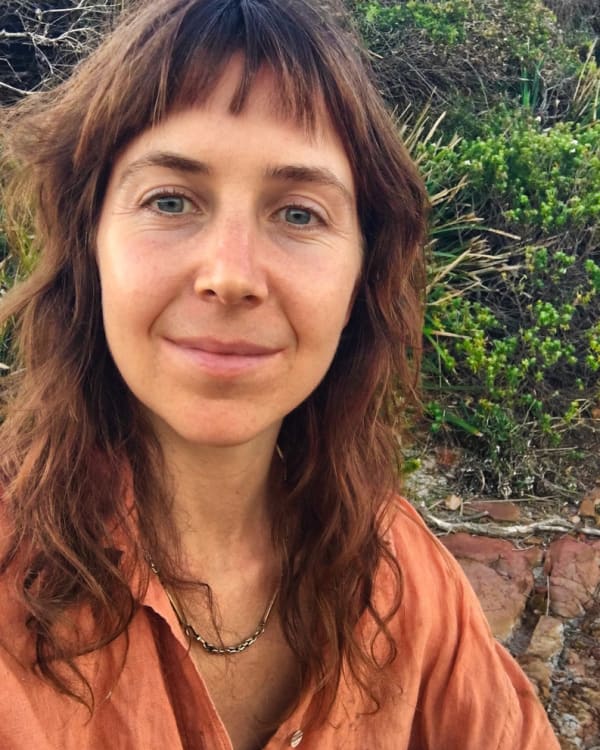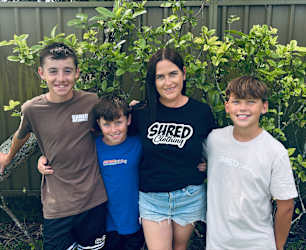Ahead of R U OK Day on Thursday, September 14, local psychotherapist Georgie Igoe shares her perspective on the mental health challenges that today's young people are facing. Wollongong City Council is holding events this week to mark R U OK Day, which focuses on inspiring people to meaningfully connect and start a conversation with those who may be struggling with life.
Raging floods, fires, pandemics, lockdowns; grief and loss. Walking down the streets along the ancient Merrigong, I can see the black cockatoos and kookaburras taking shelter amidst the storms. And perhaps they are also organising what to do, what cracks are unearthing in the world.
The unfathomable threats of climate change are rendering us more disempowered and disembodied as a community. For young people, in unique and incredibly unjust ways, this is fostering anxiety, hopelessness and anger about the world that they are inheriting. A world that, ironically, will be theirs, yet one they have no current political power in to make decisions that impact their future.
My name is Georgie, I am an artist and psychotherapist living and working on stolen Dharawal country, the beautiful coastal lands and seas of the Wodi Wodi people. I am passionate about the relational experience in supporting healing, which includes our connection to the natural world, our bodies and each other.
The thresholds and intersections of the group and individual are integral to my practice. I believe deeply in our human need to hold and process grief as individuals and as a collective, as a means to honour and nurture what we are losing and what has been lost, in addition to nurturing solidarity and hope.
I am concerned about the absence of youth voices in this dialogue. The young people I meet are starving for conversations, collaborations and are passionately engaged in actions of climate justice and decolonisation. They are adaptable, creative and resilient, having spent much of their youth locked down in their houses, and with catastrophic climate conditions at their doorsteps.
We treat climate distress as an individual ailment to be fixed, rather than locating it in the wider system that is responsible. Distress over the climate crisis is a reasonable, embodied and heartfelt response that needs to be embraced, felt and processed in order for healing to occur.
Decolonisation and indigenisation are central to this process. It's integral to acknowledge, talk and act with First Nations communities, who have lived harmoniously with and cared for the environment for 70,000 years, even after centuries of violence that is ongoing.
We also need to confront how much we will continue to sacrifice ourselves and this beautiful earth to a culture of domination, control, desensitisation and development.
For millennia, cultures here and around the world have provided and continue to provide spaces for young people to feel a sense of acceptance and belonging through their journey of adolescence. Ranging from coming-of-age ceremonies to rite-of-passage experiences, these spaces create opportunities and experiences for young people to acknowledge their loss, connect with their grief and nurture hope – to look at what they are gaining, to explore hopes and desires.
Expressing these emotions can be supported in many therapeutic ways, such as dialogue, connection to the natural environment, art, music, poetry and dance. Working with grief in ritualised ways is an impactful and meaningful way for humans to connect and process the heartache in their lives.
I take shelter in the Gaelic phrase Ar scáth a chéile a mhaireann na daoine – which means 'people live in each other's shadows'. Our survival is dependent on our connectedness with each other and our field.
Young people have been left without spaces to authentically connect in their journey to adulthood, without spaces to express raw energy and emotion about themselves and the world.
In the absence of these authentic spaces, we are failing to support young people.
So I am learning and offering how to co-create them.
To express oneself is a human right and allows for healing fundamental to development and growth. I am committed to transforming this experience of adolescence and eco-anxiety into one that creates a meaningful future where expression, in all its forms, is validated, celebrated and transformed through growth and connection.
I am calling on our community to invest in these spaces where young people can navigate, explore and be held in their grief in safe and respectful ways. For more information about what this could look like, please reach out via the contact details below.
About the author

Georgie Igoe of Anam Cara Healing is an Irish psychotherapist and an artist. Anam Cara is a Celtic phrase meaning 'soul-friend'. Georgie works one-on-one and in groups utilising somatic, earth-based and relational Gestalt practices, specialising in grief, adolescence, birth and motherhood, trauma and intergenerational healing. Woven intimately into all of her practices is a hand-painted deck of cards she has made called the Anam Cara Deck; each card is a watercolour representation of the world around, inviting reflection and connection. She is located on stolen Dharawal country, nestled amongst the towering ancient Merrigong full of black cockatoos, where sovereignty was never ceded by the Wodi Wodi people, and will always be Aboriginal land.
Contact: 0428 767 086, igoegeorgina@gmail.com, Saltbush Clinic, 55 Moore Street, Austinmer





